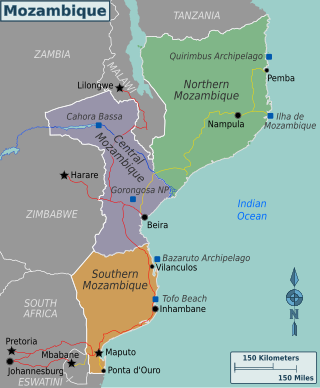Related Research Articles

Zidovudine (ZDV), also known as azidothymidine (AZT), is an antiretroviral medication used to prevent and treat HIV/AIDS. It is generally recommended for use in combination with other antiretrovirals. It may be used to prevent mother-to-child spread during birth or after a needlestick injury or other potential exposure. It is sold both by itself and together as lamivudine/zidovudine and abacavir/lamivudine/zidovudine. It can be used by mouth or by slow injection into a vein.
The management of HIV/AIDS normally includes the use of multiple antiretroviral drugs as a strategy to control HIV infection. There are several classes of antiretroviral agents that act on different stages of the HIV life-cycle. The use of multiple drugs that act on different viral targets is known as highly active antiretroviral therapy (HAART). HAART decreases the patient's total burden of HIV, maintains function of the immune system, and prevents opportunistic infections that often lead to death. HAART also prevents the transmission of HIV between serodiscordant same-sex and opposite-sex partners so long as the HIV-positive partner maintains an undetectable viral load.
The National Institute of Allergy and Infectious Diseases is one of the 27 institutes and centers that make up the National Institutes of Health (NIH), an agency of the United States Department of Health and Human Services (HHS). NIAID's mission is to conduct basic and applied research to better understand, treat, and prevent infectious, immunologic, and allergic diseases.

Nevirapine (NVP), sold under the brand name Viramune among others, is a medication used to treat and prevent HIV/AIDS, specifically HIV-1. It is generally recommended for use with other antiretroviral medications. It may be used to prevent mother to child spread during birth but is not recommended following other exposures. It is taken by mouth.
Elizabeth Glaser was an American AIDS activist and child advocate married to actor and director Paul Michael Glaser. She contracted HIV very early in the modern AIDS epidemic after receiving an HIV-contaminated blood transfusion in 1981 while giving birth. Like other HIV-infected mothers, Glaser unknowingly passed the virus to her infant daughter, Ariel, who died in 1988.

The Elizabeth Glaser Pediatric AIDS Foundation (EGPAF) is a nonprofit organization dedicated to preventing pediatric HIV infection and eliminating pediatric AIDS through research, advocacy, and prevention and treatment programs. Founded in 1988, the organization works in 12 countries around the world.

The AIDS Clinical Trials Group network (ACTG) is one of the largest HIV clinical trials organizations in the world, playing a major role in setting standards of care for HIV infection and opportunistic diseases related to HIV and AIDS in the United States and the developing world. The ACTG is composed of, and directed by, leading clinical scientists in HIV/AIDS therapeutic research. The ACTG is funded by the Department of Health and Human Services, National Institutes of Health through the National Institute of Allergy and Infectious Diseases.

Mozambique is a country particularly hard-hit by the HIV/AIDS epidemic. According to 2008 UNAIDS estimates, this southeast African nation has the 8th highest HIV rate in the world. With 1,600,000 Mozambicans living with HIV, 990,000 of which are women and children, Mozambique's government realizes that much work must be done to eradicate this infectious disease. To reduce HIV/AIDS within the country, Mozambique has partnered with numerous global organizations to provide its citizens with augmented access to antiretroviral therapy and prevention techniques, such as condom use. A surge toward the treatment and prevention of HIV/AIDS in women and children has additionally aided in Mozambique's aim to fulfill its Millennium Development Goals (MDGs). Nevertheless, HIV/AIDS has made a drastic impact on Mozambique; individual risk behaviors are still greatly influenced by social norms, and much still needs to be done to address the epidemic and provide care and treatment to those in need.

Jane Aronson, D.O. is an osteopathic physician, with expertise in pediatric infectious diseases and adoption medicine.
HIV prevention refers to practices that aim to prevent the spread of the human immunodeficiency virus (HIV). HIV prevention practices may be undertaken by individuals to protect their own health and the health of those in their community, or may be instituted by governments and community-based organizations as public health policies.
Arthur J. Ammann was an American pediatric immunologist and advocate known for his research on HIV transmission, discovering in utero transmission and the risk of contaminated transfusions and blood products, and his role in the development of the first successful vaccine to prevent pneumococcal infection in 1977. He founded Global Strategies for HIV Prevention and was Clinical Professor of Pediatrics at the UCSF Medical Center.
Julio S. G. Montaner, is an Argentine-Canadian physician, professor and researcher. He is the director of the British Columbia Centre for Excellence in HIV/AIDS, the chair in AIDS Research and head of the Division of AIDS in the Faculty of Medicine at the University of British Columbia and the past-president of the International AIDS Society. He is also the director of the John Ruedy Immunodeficiency Clinic, and the Physician Program Director for HIV/AIDS PHC. He is known for his work on HAART, a role in the discovery of triple therapy as an effective treatment for HIV in the late 1990s, and a role in advocating the "Treatment as Prevention" Strategy in the mid-2000s, led by Myron Cohen of the HPTN 052 trial.
Deborah Persaud is a Guyanese-born American virologist who primarily works on HIV/AIDS at Johns Hopkins Children's Center.
HIV in pregnancy is the presence of an HIV/AIDS infection in a woman while she is pregnant. There is a risk of HIV transmission from mother to child in three primary situations: pregnancy, childbirth, and while breastfeeding. This topic is important because the risk of viral transmission can be significantly reduced with appropriate medical intervention, and without treatment HIV/AIDS can cause significant illness and death in both the mother and child. This is exemplified by data from The Centers for Disease Control (CDC): In the United States and Puerto Rico between the years of 2014–2017, where prenatal care is generally accessible, there were 10,257 infants in the United States and Puerto Rico who were exposed to a maternal HIV infection in utero who did not become infected and 244 exposed infants who did become infected.

Lauren V. Wood is an American allergist, immunologist, and staff physician at the National Cancer Institute (NCI) at the National Institutes of Health (NIH) in Bethesda, Maryland, where she has served as a principal investigator. She is known for conducting studies of vaccines for cancer, Human papillomavirus (HPV), Hepatitis C, and HIV especially for use with children, teens and young adults. She holds the rank of captain in the U.S. Public Health Service (PHS).
Yvonne "Bonnie" Maldonado is an American physician, pediatrician, and Professor of Pediatrics and of Health Research and Policy at Stanford University, with a focus on Infectious Diseases. She founded Stanford's pediatric HIV Clinic and now serves as Stanford University School of Medicine's Senior Associate Dean of Faculty Development and Diversity.
Etienne Karita is a Rwandan scientist who has been researching HIV/AIDS in Rwanda since the mid-1980s. He has held numerous leadership positions in different organizations that are working to control HIV in Rwanda. Some of his work is concentrated on preventing mother to child transmission of HIV and in collaboration with Projet San Francisco, he has studied HIV in discordant couples.
Peter Nicholas Kazembe was a Malawian pediatrician, well known internationally for his work in pediatric antiretroviral therapy and treatment of malaria. He was one of the first two pediatricians in the country and was often considered the "grandfather of pediatrics" in Malawi. He is credited with publishing over 250 journal articles in his field. He was the Director of the Baylor International Pediatric Program and an associate professor at University of North Carolina at Chapel Hill. Prior to this, he played a role in pioneering Malawi's pediatric HIV/AIDS care treatment guidelines, and was also the Director of Malawi's first HIV clinic and Chief of Pediatrics at Kamuzu Central Hospital.
Katherine Luzuriaga is an American physician and pediatric immunologist who primarily works on HIV/AIDS at the University of Massachusetts Medical School (UMMS). She is currently a vice provost at UMMS and the director of the UMass Center for Clinical and Translational Science.
References
- 1 2 3 4 5 6 "Women of ID – Infectious Diseases Society of America". www.idsafoundation.org. 2018. Retrieved 25 September 2020.
- 1 2 3 "Wilfert receives North Carolina Award for Science | Duke Department of Pediatrics". pediatrics.duke.edu. 19 November 2019. Retrieved 25 September 2020.
- 1 2 3 "Remembering Dr. Cathy Wilfert - EGPAF". Elizabeth Glaser Pediatric AIDS Foundation. 21 September 2020. Retrieved 25 September 2020.
- ↑ Wilfert, C. (31 October 2009). "Catherine Wilfert". The Lancet. 374 (9700): 1493. doi: 10.1016/S0140-6736(09)61893-6 . ISSN 0140-6736. PMID 19880007. S2CID 29802225.
- ↑ "Zidovudine for the Prevention of HIV Transmission from Mother to Infant". 43 (16). 29 April 1994: 285–287.
{{cite journal}}: Cite journal requires|journal=(help)